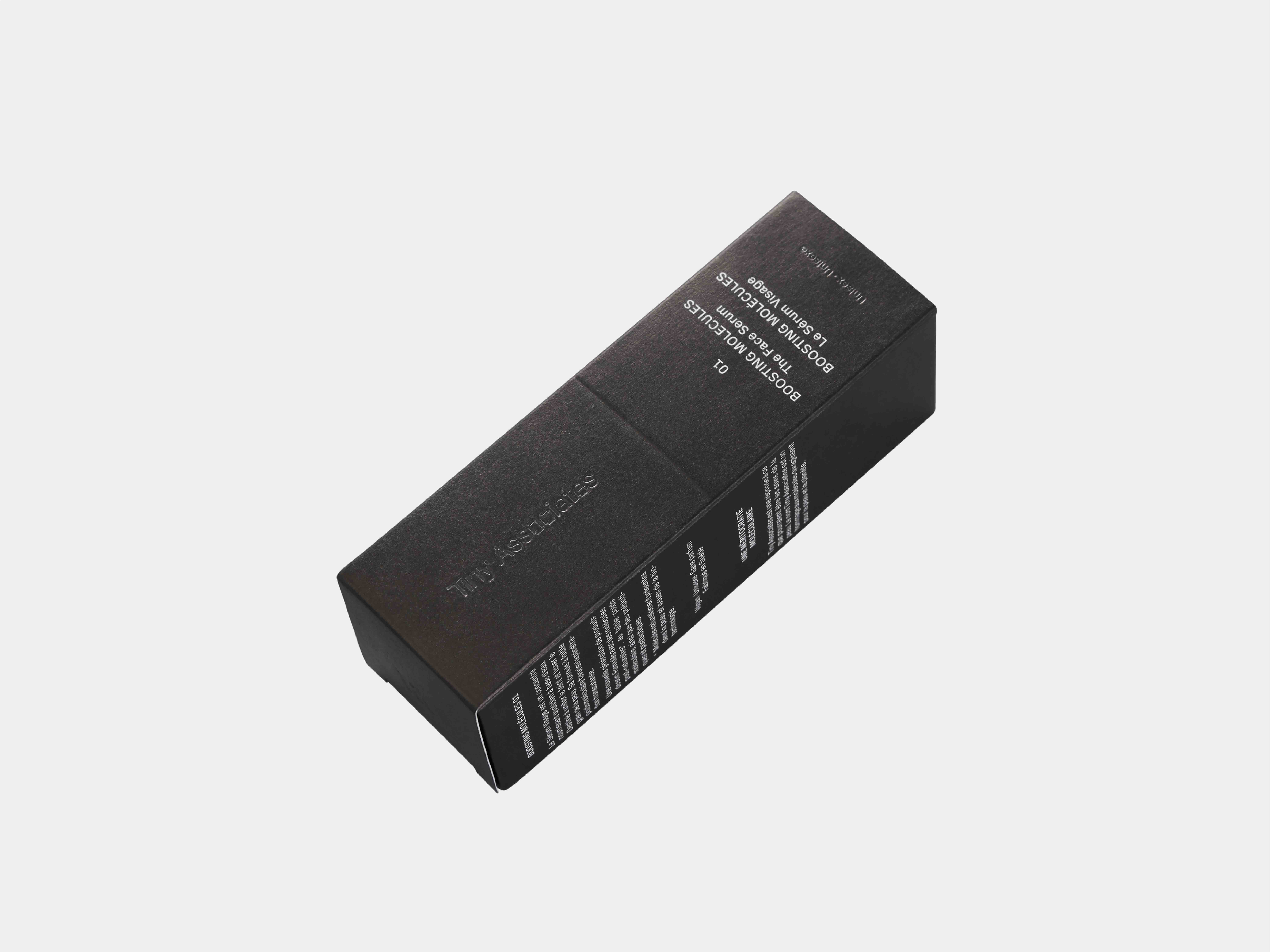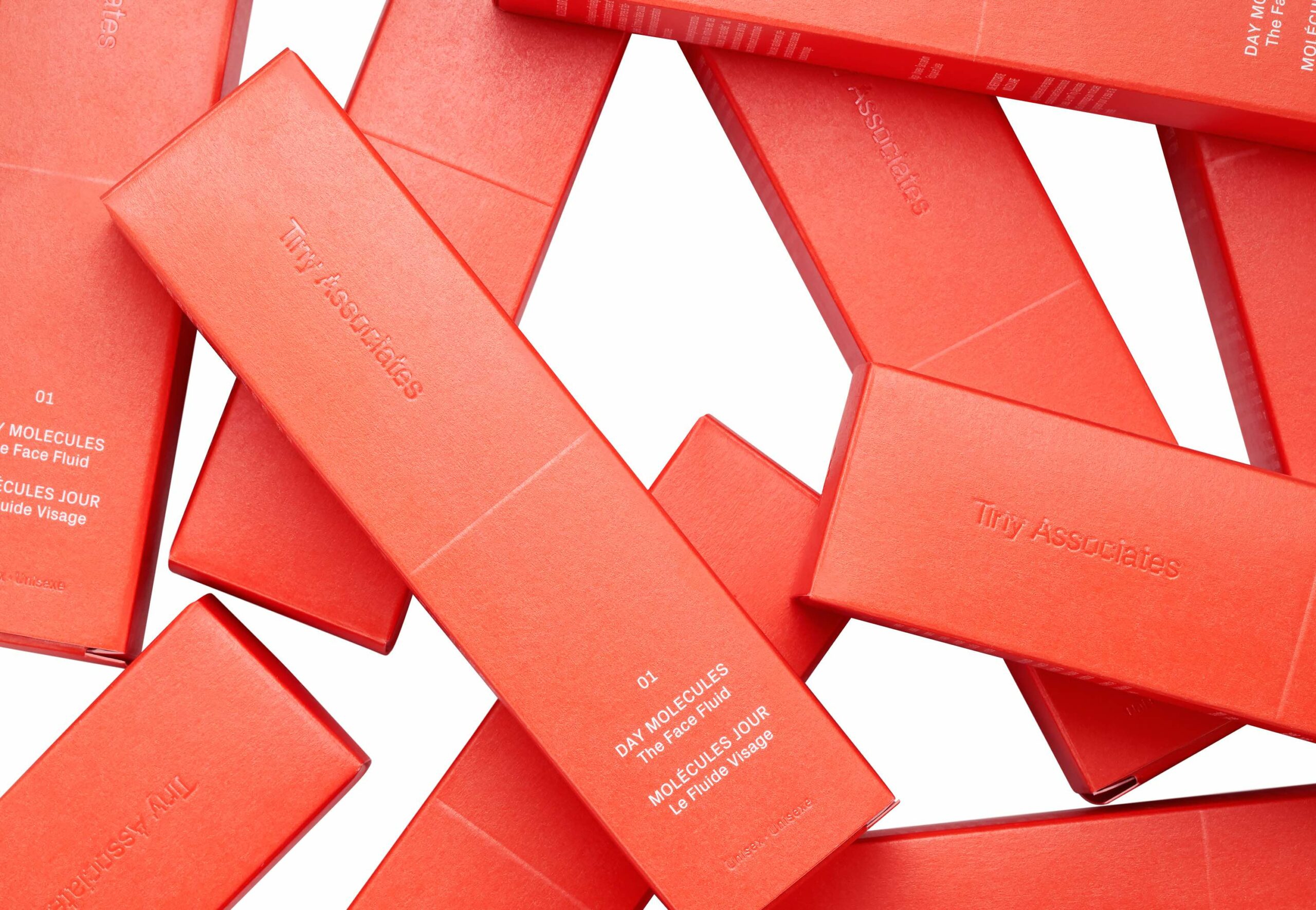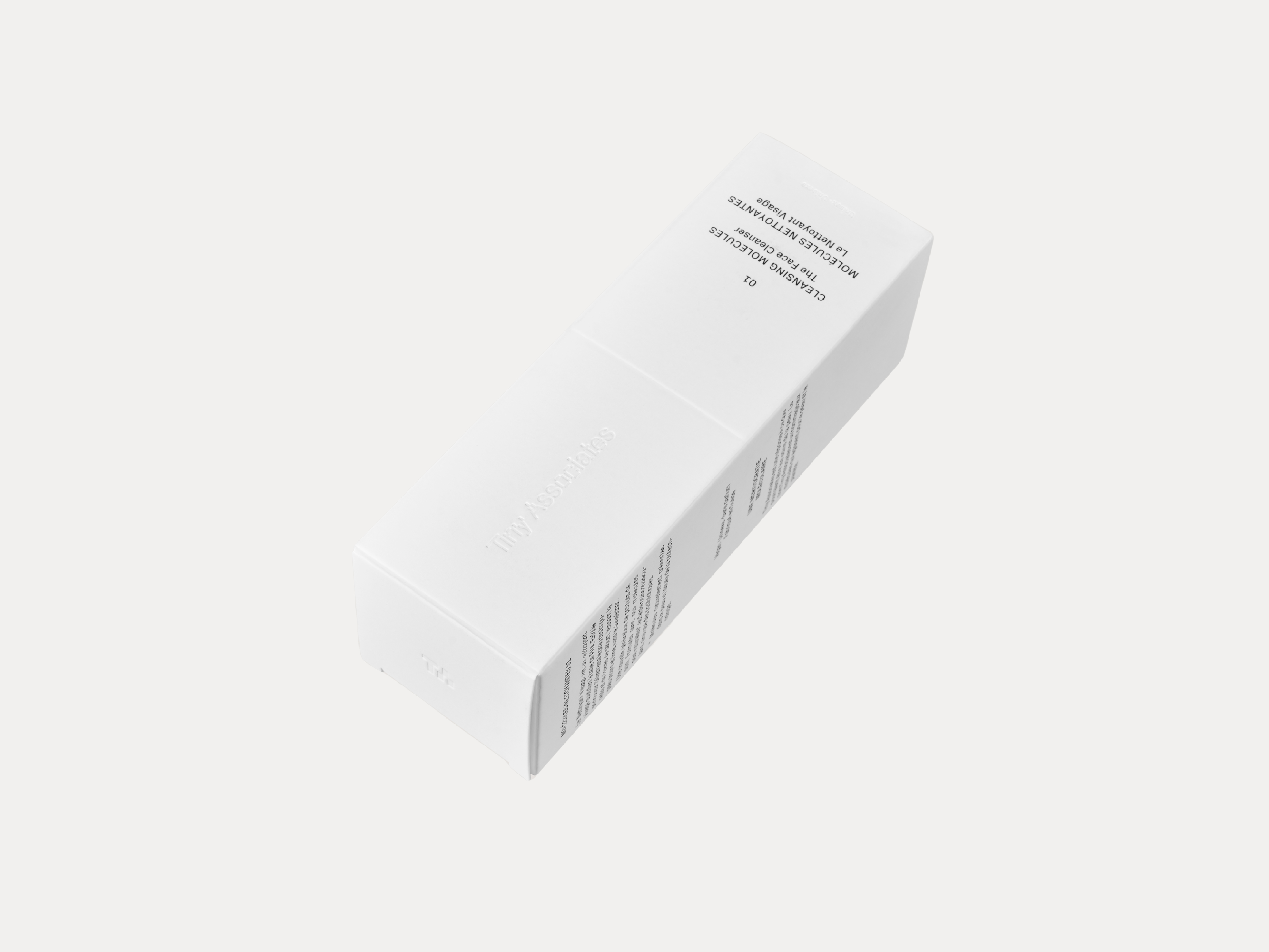
This New Skincare Brand Wants To Lead A Post-Natural Beauty Movement
Beauty brands value natural ingredients so much that they promote them even if their products have a mere sprinkling of them in their formulas. David Koo Hjalmarsson, the entrepreneur behind the new brand Tiny Associates, thinks their values are misplaced. He declares it’s time for the beauty industry to shift away from natural ingredients in favor of ingredients concocted in labs.
“Too many skincare companies are sourcing nature-derived ingredients. As the demand for such ingredients increases, the burden on the planet´s limited resources rises as well. Producing plant-based ingredients requires land, water, sun and energy,” says Koo Hjalmarsson. “But to recreate molecules naturally occurring in the nature inside the quality-controlled confinement of a lab—biotechnologically made—requires much less or none of these resources. Biotechnology is, as you know, the very same technology driving sustainability efforts in other industries such as food and fashion.”
Instead of sprinkling natural ingredients into Tiny Associates’ products, Koo Hjalmarsson is interested in putting as few natural ingredients into them as possible. The brand’s initial biotechnology ingredients include postbiotics from ingredient company Codif and BisaboLife from ingredient company Givaudan. BisaboLife is a version of bisabolol, an ingredient prized for its anti-inflammatory properties, that results from the fermentation of plant sugars in a lab. In nature, Givaudan estimates a ton of 12-year-old Brazilian Candeia tree bark produces 7 kilograms of bisabolol.

“It’s extremely much more sustainable to make it with bacteria that you feed sugarcane,” says Koo Hjalmarsson. “If you take into account the supply chains that you need in place to harvest and make bisabolol readily available for the cosmetic industry, that’s also quite significant.” On top of the sustainability aspect, purity is a benefit of lab-manufactured ingredients. Koo Hjalmarsson says, “Quality can be much more controlled than if you harvest them.”
Tiny Associates is launching with eight products priced from 35 to 78 euros or roughly $38 to $85 at the current exchange rate: The Face Fluid Day Molecules 01, The Face Cream Night Molecules 01, The Face Serum Boosting Molecules 01, The Face Cleanser Cleansing Molecules 01, The Lip Balm Specific Molecules 01, The Moisture Skin Supplement 01, The Antioxidant Skin Supplement 02 and The Before Night Body Supplement 01. The idea of the range is to cover the basics and span a variety of textures to satisfy different consumer preferences.
The name Tiny Associates refers to the molecules in the brand’s formulas. Koo Hjalmarsson had four parameters for them. They had to be vegan. He leaned into ones found in human skin. They had to have low weight. Specifically, around or under 500 Daltons in size, a measurement commonly used in skincare products to allow for absorption into the skin. They had to be gentle for the skin microbiome. Tiny Associates tapped the startup Sequential Skin for in vivo testing to substantiate its skin microbiome claims. In addition to Tiny Associates, Koo Hjalmarsson is involved in Kind to Biome, which bestows on mark on products verified to support the skin microbiome.
For Tiny Associates’ supplements to be sold in South Korea, they endured disintegration testing or performance testing determining their ability to disintegrate in the body. “If you pass a disintegration test, it shows the potential that your supplement will be bioavailable,” explains Koo Hjalmarsson. “If you look at the research, there’s not a consensus on whether skin supplements actually work for the skin, but we believe that the consensus has not been reached because skin supplements have not been done with quality. They haven’t been bioavailable or potent enough.”
“Too many skincare companies are sourcing nature-derived ingredients. As the demand for such ingredients increases, the burden on the planet´s limited resources rises as well.”
A former management consultant, Koo Hjalmarsson entered the beauty industry when he moved from Sweden, where he’s from, to South Korea, where his wife is from, to be closer to her family. With the move, he became CEO of a direct-to-consumer skincare brand called Norragen and exposed to South Korea’s beauty innovations. About two years ago, he began developing Tiny Associates. Headquartered in Stockholm, where he now resides, its parent company is angel investor-backed All Molecules AB. Koo Hjalmarsson declines to disclose a first-year sales goal for Tiny Associates.
He believes the fetishization of natural ingredients in the beauty industry is a consequence of the organic food industry. “You can almost equate organic, nature-derived food with being good for you and that makes sense, but just equating plant-derived ingredients as being good for your skin just because they are plant-derived, we shouldn’t shop like that,” he says. “What’s good for you to eat isn’t necessarily good for your skin.”
Not only are nature-derived skincare ingredients not necessarily good for your skin, Koo Hjalmarsson argues the fetishization of them can be destructive because it causes beauty brands to flood the market with products containing them. “We saw in South Korea that there are between three and five new skincare brands per day launching and many of those obviously don’t survive,” he says. “What do we do with all the packaging and the ingredients? With MOQs, they’ve been forced to order 5,000 to 10,000 units they weren’t able to sell. There’s a lot of problems with the whole natural trend we would like to shed light on.”
Koo Hjalmarsson is starting slow with Tiny Associates to educate consumers on its concept. He’s treating Scandinavia as a trial market and aiming to distribute the brand’s products in lifestyle and fashion stores that draw early adopter types. Besides lettering, Tiny Associates’ packaging features a single color. It’s The Face Serum Boosting Molecules 01 is completely black, for example, except for white lettering. The sleek, monochromatic design is suited to avant-garde retail assortments.

If Tiny Associates succeeds in Scandinavia, Koo Hjalmarsson’s intention is to expand the brand elsewhere in Europe as well as Asian countries, Canada and the United States. “South Korea is a market where we have big ambitions,” he says. “If you go out in the market and look at the shelves there, there is literally zero international supplements, and there may be five supplement brands in general selling offline. The regulatory landscape is way too tight.”
The ultimate mission is to prove biotechnology is better for the beauty industry than nature. “For us, the mission is not to use this as a unique selling point or something to leverage as a competitive advantage, although, whether we want it to or not, it will become that,” says Koo Hjalmarsson. “We really think this is something the industry might be willing to adopt. It offers a low-friction transition to more sustainability regardless of what your brand is.”





Leave a Reply
You must be logged in to post a comment.